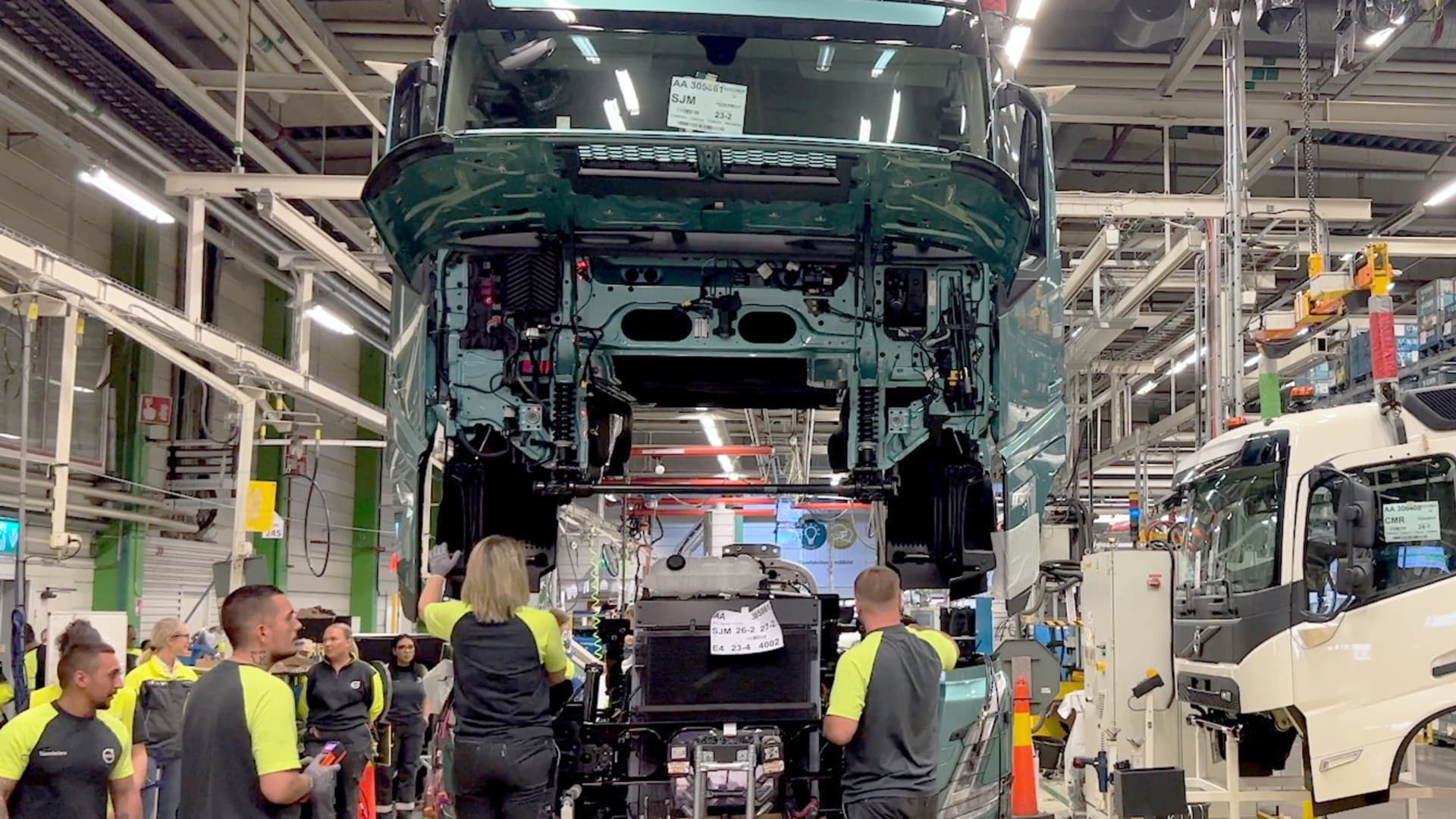Volvo starts series production of heavy-duty electric trucks, targets 50% of sales by 2030

Volvo Trucks said Wednesday that production of three heavy duty electric truck models was now underway, with its president telling CNBC that the news represented “a big moment” for the firm.
In a statement, Volvo Trucks said the electrified Volvo FM, Volvo FMX and Volvo FH vehicles could run at a weight totaling 44 metric tons.
According to the company, the range for the electric FM is up to 380 kilometers, or just over 236 miles. Ranges for the FMX and FH are up to 320 km and 300 km, respectively.
The company said production was beginning at a facility in Gothenburg, Sweden. Next year will see production commence at a site in Ghent, Belgium.
Batteries will be supplied by a Volvo Trucks plant in Ghent. Volvo Trucks, which is part of the Volvo Group, said it now had “six electric truck models in series production globally.”
Speaking to CNBC on Wednesday morning, Volvo Trucks President Roger Alm was bullish about the company’s prospects going forward.
“We have actually already sold 1,000 units of these heavy-duty electrical trucks before the production start,” he said. Elm went on to add that the business saw “an increasing demand coming ahead of us as well.”
In remarks published on his firm’s website, Elm said that, by the year 2030, “at least 50 percent of the trucks we sell globally should be electric.”
For trucks as well as cars, adequate charging options will be important when it comes to dispelling concerns about “range anxiety,” a term which refers to the idea that electric vehicles aren’t able to undertake long journeys without losing power and getting stranded.
During his interview with CNBC, Volvo Trucks’ Alm was asked about charging infrastructure. “Of course, we need to … build out the infrastructure of the of the charging network, that is very important,” he said.
Hydrogen hopes
Earlier this year, Volvo Trucks said it had begun to test vehicles that use “fuel cells powered by hydrogen,” with the Swedish firm claiming their range could extend to as much as 1,000 kilometers, or a little over 621 miles.
In a statement, the company said refueling of the vehicles would take under 15 minutes. Customer pilots are set to begin in the next few years, with commercialization “planned for the latter part of this decade.”
Volvo Trucks’ focus on zero-emission technologies puts it in competition with companies like Tesla and Daimler Truck, which are both developing electric trucks.
Like Volvo Trucks, Daimler Truck is focusing on both battery-electric and hydrogen vehicles. In March 2021, Daimler Truck and the Volvo Group set up cellcentric, a 50:50 joint venture centered around the production of fuel cells.




